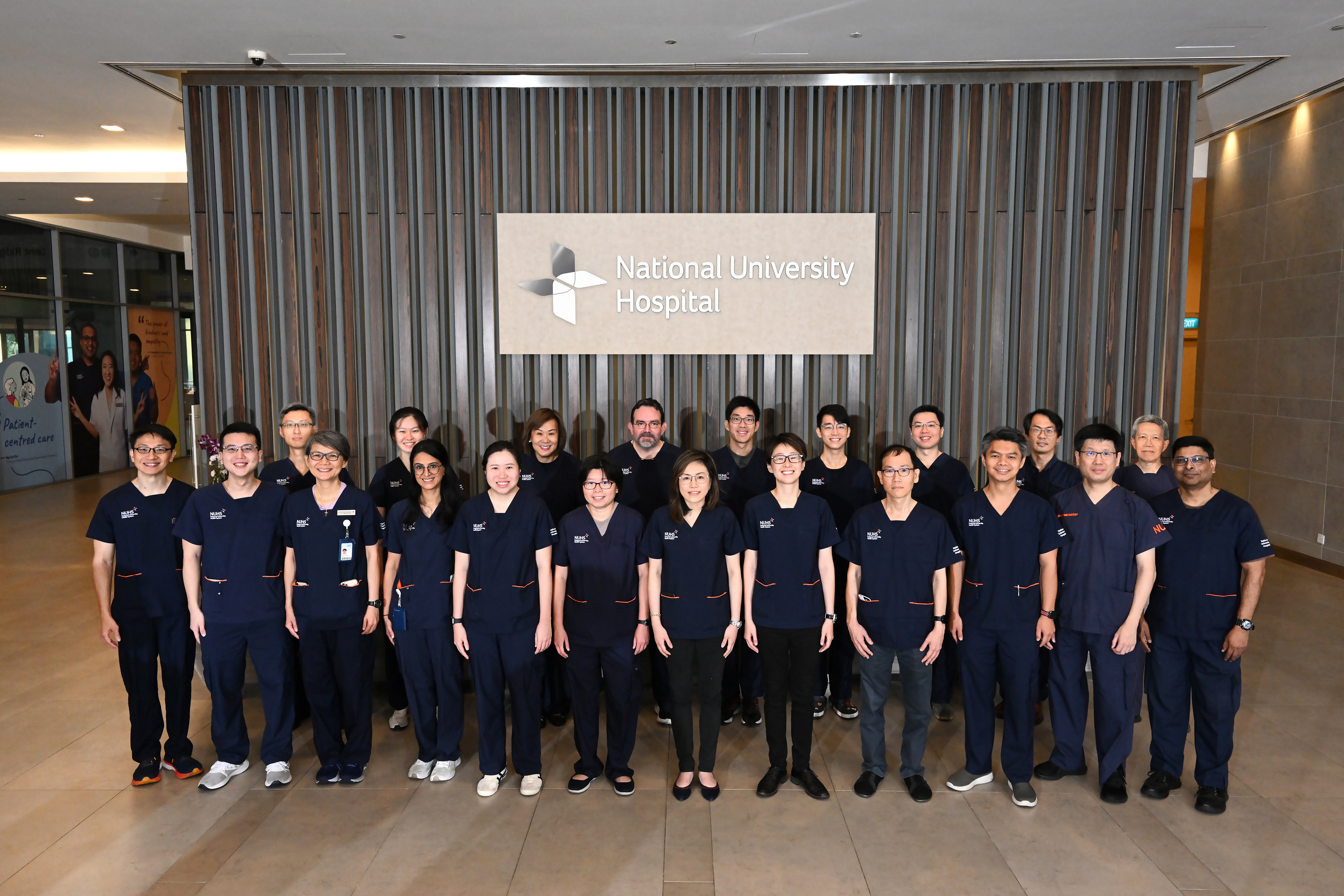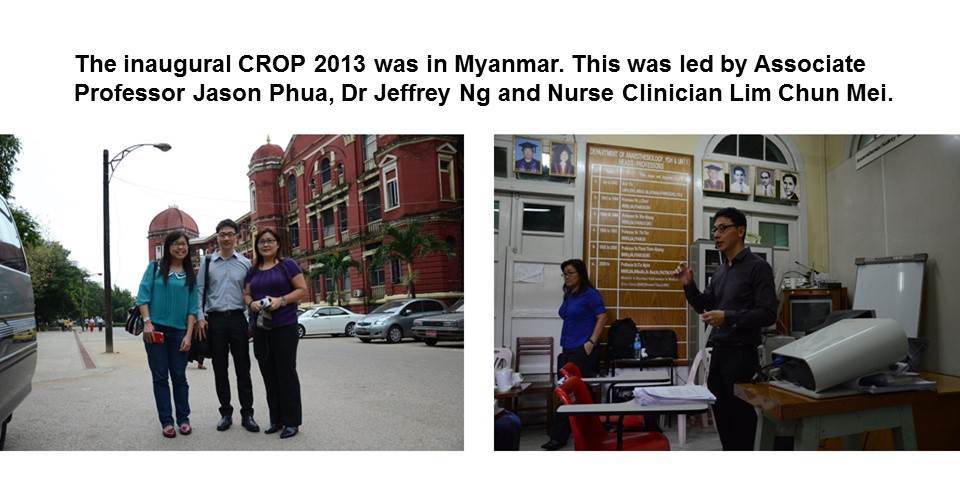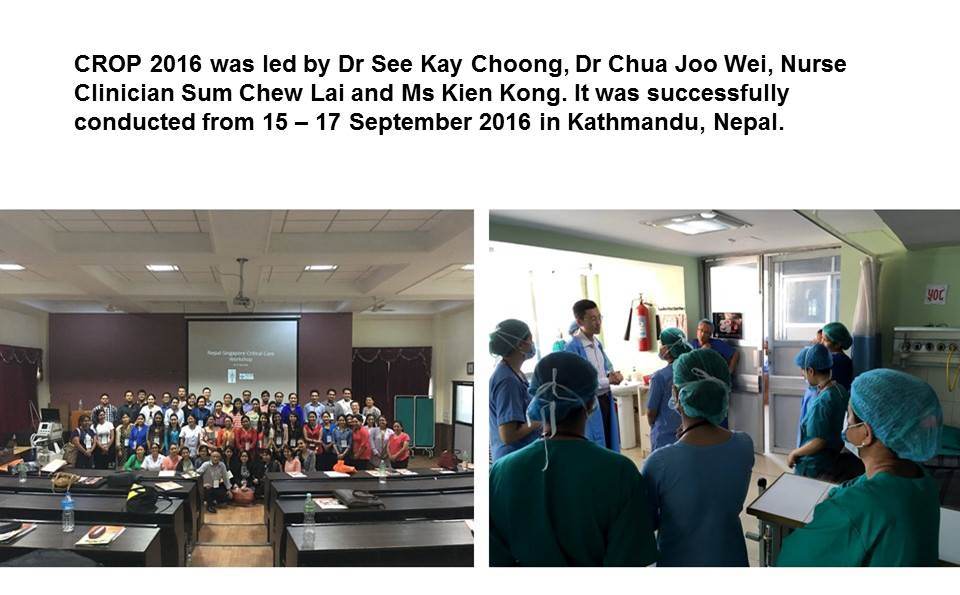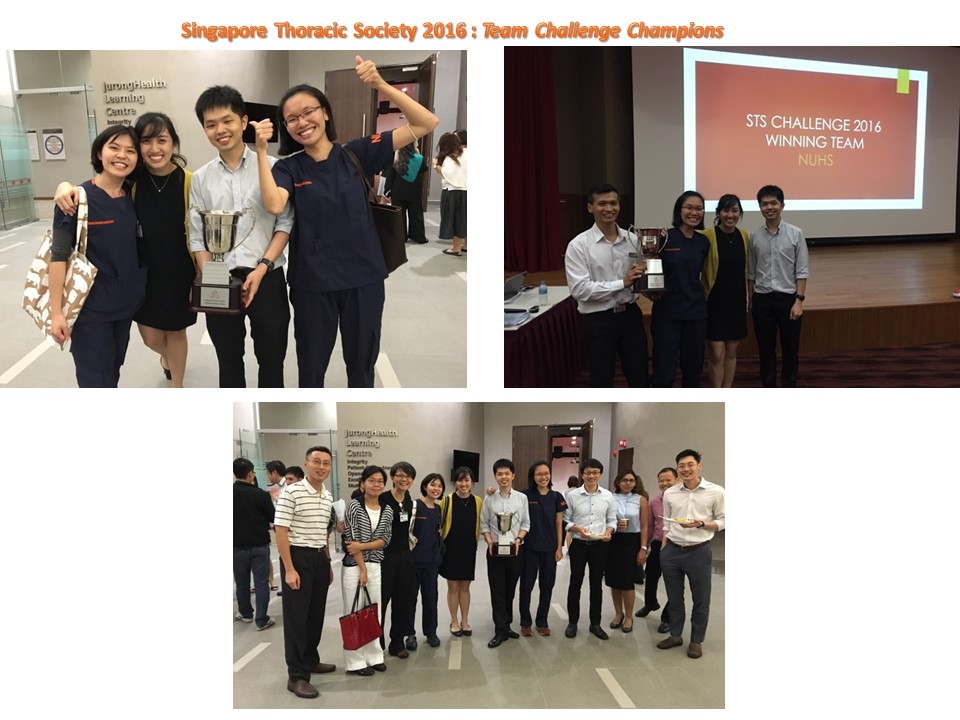Respiratory Medicine
Infections
Common symptoms include cough, yellowish or green phlegm, and fever. Chest X-rays typically show lung opacities. Antibiotics are the standard treatment for this condition.
- Pulmonary Tuberculosis (TB)
Still prevalent in Singapore, symptoms include a persistent cough (usually over two weeks), fever, night sweats and weight loss. Treatment requires specific anti-TB antibiotics for a minimum of six months.
A benign condition where the airways are infected, leading to cough, sometimes accompanied by fever and shortness of breath. Symptomatic relief is generally adequate for treatment.
Obstructive Lung Disorders
A common condition affecting individuals of all ages, characterised by highly sensitive small airways. Symptoms include cough, shortness of breath and wheezing. Lung function tests typically reveal variable airflow limitation and responsiveness to bronchodilators. Treatment involves a multi-faceted approach, including inhaled steroids.
- Chronic Obstructive Pulmonary Disease (COPD)
Often caused by prolonged tobacco smoke exposure (and less commonly, air pollution), COPD damages the lungs. Symptoms include recurrent cough, phlegm and breathing difficulties. Lung function tests show a fixed airflow limitation. Treatment focuses on reducing exacerbations and improving quality of life through medications and rehabilitation, but smoking cessation is crucial for enhancing survival and slowing lung damage progression.
This condition involves dilated, inflamed airways due to repeated infections, leading to progressive damage. Causes include past tuberculosis or severe lung infections, idiopathic disorders, immunodeficiency or genetic disorders. Symptoms are cough, recurrent yellow sputum and breathing difficulties. Treatment typically includes antibiotics and inhalers.
Pleural Disorders
Characterised by spontaneous air leakage into the pleural space, it can occur in individuals with or without prior lung problems. Symptoms include sudden chest pain and breathlessness. Diagnosis requires a chest X-ray and immediate treatment typically involves draining the air using a needle or chest tube.
- Parapneumonic Effusion and Empyema
This condition involves the accumulation of infected fluid in the pleural cavity, potentially as a complication of pneumonia. Symptoms include fever, cough, chest pain and shortness of breath. Treatment starts with antibiotics and usually drainage of the fluid, confirmed by chest X-ray. Severe cases may require surgical intervention.
Sometimes, tuberculosis primarily infects the pleural space, causing symptoms like cough, fever, breathlessness, chest discomfort with weight loss and loss of appetite. Treatment involves with anti-tuberculous medications for at least six months.
Fluid in the pleural cavity can also result from lung cancers or cancers from other body parts. Symptoms include chest discomfort and shortness of breath, in addition to underlying cancer symptoms. Treatment may start with draining the fluid and could involve other therapeutic approaches.
Tumours
Common symptoms of this prevalent cancer include cough (sometimes with bloody sputum) and breathlessness. Diagnosis may involve chest X-rays, lung scans, sputum tests, bronchoscopies or lung biopsies. Treatment typically requires a multi-disciplinary approach and may include symptomatic relief, surgery, chemotherapy and/or radiotherapy.
This relatively rare tumour affects the pleural cavity, often in individuals with asbestos exposure. Symptoms include vague chest discomfort, weight loss, shortness of breath and a dry cough. Treatment options vary based on the disease stage.
Several types of benign lung tumours exist, often asymptomatic and incidentally discovered.
Pulmonary Vasculature Disorders
Blood clots can sometimes obstruct the blood vessels supplying the lungs. Common risk factors include cancer, prolonged immobility and post-surgical conditions. Symptoms may include breathlessness, chest pain and sometimes swelling in the lower limbs. Severe cases can lead to low blood pressure and reduced oxygen levels. Treatment typically involves anticoagulants to prevent clot progression.
This condition is characterised by high blood pressure in the lung’s blood vessels and can arise from various causes. Symptoms include easy breathlessness and low blood oxygen levels. Treatment options vary based on the underlying cause.
Sleep Disorders
This occurs when the upper airways are during sleep, often by the tongue or other structures. It leads to disrupted sleep and reduced oxygenation. Symptoms include daytime sleepiness and night-time snoring. Diagnosis is confirmed through sleep studies. Continuous positive airway pressure (CPAP) therapy is typically effective.
In this condition, the brain’s regulation of breathing is disrupted during sleep, causing abnormal breathing patterns. Though symptoms are similar to obstructive sleep apnoea, it is not due to physical obstruction. Investigations and treatments are akin to those for obstructive sleep apnoea, but a different mode of machine is used.
Diffuse Parenchymal Lung Diseases (DPLD)
- Idiopathic Pulmonary Fibrosis
Commonly affecting older individuals, this disorder involves lung scarring and degeneration. Symptoms include progressive breathlessness and dry cough. Chest X-rays and lung scans typically reveal scarring. Treatment focuses on symptomatic relief and supportive measures, such as oxygen therapy and antibiotics when necessary.
- Other Idiopathic Interstitial Pneumonias
These conditions involve lung degeneration, scarring and inflammation, often without a definite cause. Treatments and investigations, including lung scans, scopes, biopsies and steroids, vary depending on the specific condition.
- DPLD related to Collagen Vascular Disease
Collagen vascular diseases, such as lupus, can affect the lungs, causing various forms of interstitial pneumonia. Treatment may involve steroids and other immune-targeting drugs.
Long-term exposure to certain dusts in specific occupations can damage the lungs. Examples include silicosis (silica inhalation) and asbestosis from cement piping and shipbuilding (asbestos fibre inhalation). Chest X-rays typically show characteristic patterns of damage. Treatment is supportive, focusing on symptomatic relief.
Other Restrictive Lung Disorders
- Restrictive Lung Disorders
These disorders involve restricted lung expansion due to issues with the lungs, respiratory muscles or nerves, or chest wall.
Dysfunction in breathing muscles or the nerves controlling them can disrupt breathing, potentially causing respiratory failure or recurrent chest infections. Treatment varies based on the underlying cause.
Severe deformities of the spine, ribs or sternum can impede breathing and lead to respiratory failure. Treatment may include oxygen supplementation and the use of breathing masks.
Miscellaneous
Defined as a cough persisting for more than eight weeks, it can stem from various causes such as upper airway cough syndrome, asthma, or gastro-oesophageal reflux. Treatment depends on the underlying cause and may require several basic investigations.
The mediastinum, located between the lungs, includes lymph nodes, various glands, the oesophagus, nerves, blood vessels and the heart. Disorders affecting this area, including tumours, require treatment tailored to the specific diagnosis.
- Drugs and Inhalational Injuries
Lung injury can result from ingesting certain drugs or inhaling noxious gases, leading to breathing difficulties and low blood oxygen levels. Treatment is scenario-dependent and may involve oxygen, antibiotics and/or steroids.
Critical Illnesses
A severe infection affecting any part of the body, sepsis is a common cause for intensive care unit admission. It can lead to multi-organ failure and is a significant cause of death. Treatment includes antibiotics and artificial life support.
- Acute Respiratory Distress Syndrome (ARDS)
Characterised by severe lung inflammation and scarring, ARDS results in critically low blood oxygen levels. This life-threatening condition often requires ventilator support.
Severe infections and other disorders can cause multiple organs to fail, including the brain, heart, lungs, kidneys, liver, gut and blood clotting system. Intensive and dedicated care in the ICU or high dependency unit is crucial for organ support.





















